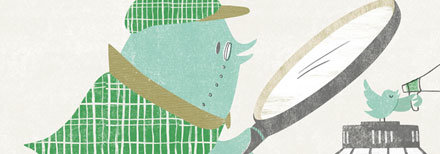The megaphone and the magnifying glass: why politicians should tweet on

 ?
?
Leverage, as every investor knows, makes a good investment better and a bad investment worse. I’ve been thinking about this recently in the context of social media.
While not many organisations these days see it as a silver bullet, there’s still a temptation to lead with social media as a solution to a brand problem. If only we could connect with people, the thinking goes, they’d like us and, you know, buy our stuff.
To see social media this way is, I think, to see it like legacy media – as a megaphone pointing outwards at the millions of eager punters just waiting to hear what you have to say.
Sometimes, in some rare cases, this is exactly how it works. Twitter’s most followed person, Katy Perry (and recently out-followered number two Justin Bieber) use it more or less like this, and their fans lap it up.
But for the rest of us, social media is less a megaphone, and more of a magnifying glass. Like a megaphone, a magnifying glass can make something small seem like something very big.
But while a brand gets to hold its own megaphone, the audience gets to hold the social media magnifying glass. So they get to decide where to point it. They also decide what to magnify, and what to ignore. And that’s where the leverage comes in. The bigger that social media magnifying glass – the more followers you have, more or less – the more your brand will be exposed for exactly what it is.
If you’re fundamentally good, the social magnifying glass will reveal that, and the good things about you will spread. If you’re not so good, those not so good things will spread too. There’s no hiding.
I was reminded of this recently when the seemingly endless debate around politicians and social media reignited following Judith Collins’ ill-advised use of Twitter to lash out at journalist Katie Bradford, and Trevor Mallard and Jan Logie posting what my friend Mike would call “yeasty” messages to the platform.
So, naturally, Speaker David Carter announced that There Was To Be An Investigation. (This in the same week that Winston Peters used parliamentary privilege to compare former colleague Brendan Horan to a sex offender, but it wasn’t on Twitter, so moving right along…)
While it’s great that the Speaker (@DavidCarterMP, 1900 followers, last tweeted in January) is taking an interest, I hope his investigation doesn’t lead to anything that might change the way MPs use social media. Because as a voter, I’m a big fan of the magnifying glass.
While press releases, speeches and advertising might present a well-spun version of how a politician wants us to appear, Twitter gives us the real deal. You can’t fake who you are for every one of 10,000 tweets. Twitter will expose you. If you’re someone we should vote for it will expose you as that. And if you’re someone we should set adrift off Raoul Island in a small open boat it will expose you as that too.
And I like that. I like that I get to see who I’m voting for. And that my mother does. And that my sons will.
So politicians, please please keep tweeting. And if you do want a rule to tweet by, consider the one Russell Brown from Public Address runs his community by: Don’t be a dick. Unless you are one, in which case go right ahead. ?




